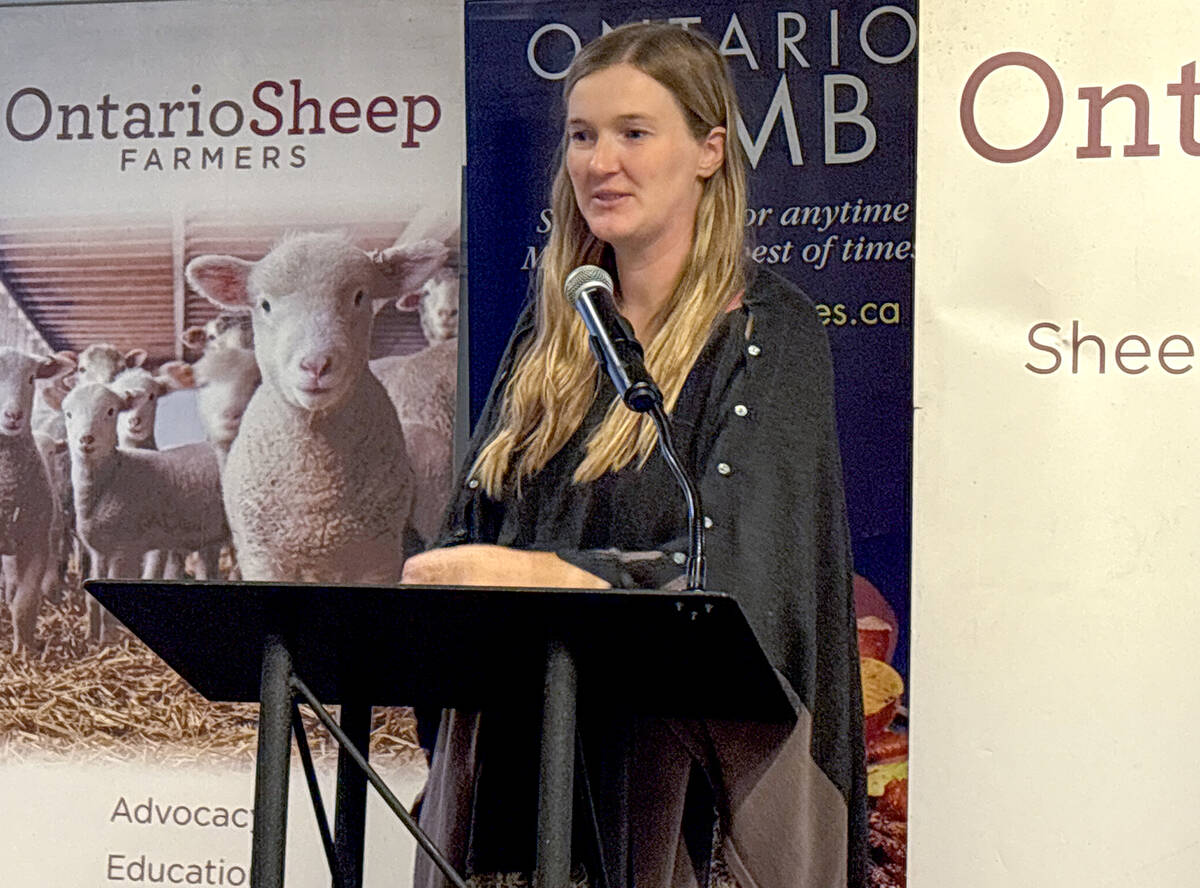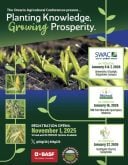Technologies that can turn renewable resources such as agricultural residues into useful bioenergy, biofuels, and biomaterials like ethanol and biodegradable plastics are receiving federal funding.
Bioindustrial Innovation Canada (BIC) will receive up to $6,592,913 from the AgriScience Program – Clusters Component under the Sustainable Canadian Agricultural Partnership to lead a Bioproducts Cluster. Research activities by the cluster aim to support the transition to a renewables-based economy and reduce greenhouse gas emissions (GHGs), Agriculture and Agri-food Canada (AAFC) said in a release.
Why it matters: Emerging bio-industrial technologies could represent a new revenue stream for farmers.
Read Also

Footflats Farm recognized with Ontario Sheep Farmers’ DLF Pasture Award
Gayla Bonham-Carter and Scott Bade, of Footflats Farm, win the Ontario Sheep Farmers’ 2025 DLF Ontario Pasture Award for their pasture management and strategies to maximize production per acre.
AAFC said this will be achieved by improving biomass production, developing new bioproducts from Canadian crops, and turning by-products into value-added bioproducts.
“Integrating agricultural feedstocks and downstream bioproducts into a variety of industry value chains will not only increase Canada’s agriculture opportunity but support industrial decarbonization,” said Meaghan Seagrave, BIC executive director, in the release.
Seagrave explained that agriculture represents a significant opportunity to develop and commercialize biochemicals, biomaterials, biofuels, energy, and novel agricultural tools and practices to provide sustainable feedstock and co-products for these applications.
“These technologies provide added and alternative value opportunities to the sector, complement existing traditional value chains and support industrial decarbonization, lower the overall carbon intensity of all sectors involved,” Seagrave explained.
BIC previously received $5.5 million in funding through the Growing Forward 2 framework and another $11.2 million through the Canadian Agricultural Partnership framework.
Previously funded projects included:
- Developing commercially viable biodiesel and bioethanol plants that convert sugar beets into biobutanol through an advanced continuous fermentation process.
- Converting bio-based feedstock into high-performing, cost-competitive and sustainable plastic.
- Microbial bioproducts as a fungicide adjuvant against various crop pathogens, eventually reaching a commercial scale.
“This funding underscores our commitment to advancing technologies that will reduce greenhouse gas emissions and increase the value of Canadian agricultural products,” said Peter Fragiskatos, London North Centre MP, during the Aug. 19 funding announcement in Sarnia. “Together, we are strengthening our agricultural sector and building a greener future.”
The Bioproducts Cluster, led by BIC, is providing farmers with a new profit stream for by-products, which would otherwise go to waste, said Lawerence MacAulay, Minister of Agriculture and Agri-Food, in a statement.
“It’s a win for farmers and a step toward a more sustainable future for all Canadians,” said MacAulay.














